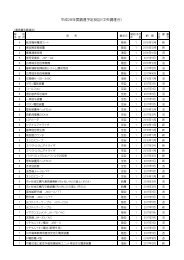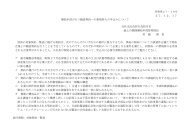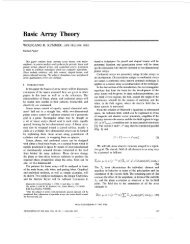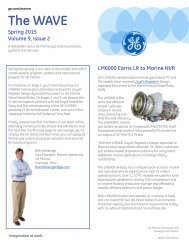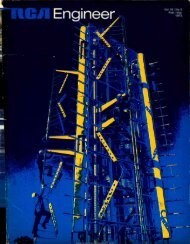NPG14_CHINFO_Web_7Mar14
NPG14_CHINFO_Web_7Mar14
NPG14_CHINFO_Web_7Mar14
Create successful ePaper yourself
Turn your PDF publications into a flip-book with our unique Google optimized e-Paper software.
U.S. NAVY PROGRAM GUIDE 2014<br />
Military Flight Operations Quality Assurance (MFOQA)<br />
Description<br />
MFOQA is knowledge-management process using data collected<br />
during flight to conduct post-flight analysis of aircrew and aircraft<br />
systems performance. MFOQA requires no additional equipment<br />
to be mounted on the aircraft platform and no additional tasking<br />
is added to the aircrew during flight. After each flight event, the aircrew<br />
can remove the data-collection card, take it to the squadron<br />
ready room, and load in the data to squadron computers. Applying<br />
MFOQA software already loaded in the computer, the aircrew<br />
can replay the flight in animation, noting geographic position, instrument<br />
readings, and aircraft performance parameters. In addition,<br />
maintenance personnel can perform diagnostic analysis of the<br />
aircraft systems, aircrews can self-evaluate their performance, and<br />
squadron leadership can review and counsel on flight procedures<br />
and safety and training issues. The ultimate payoff is increased<br />
readiness through improved safety, better training, and faster maintenance<br />
troubleshooting. Flight operations quality assurance has<br />
been used in the commercial aviation industry for years. Surveys<br />
from the airline industry have yielded high praise for the process<br />
and benefits to the Navy’s Maintenance, Operations, Safety, and<br />
Training (MOST) paradigm.<br />
Status<br />
MFOQA completed Milestone B in the first quarter 2007 and<br />
is scheduled for Milestone C in the second quarter of FY 2014,<br />
with Initial Operational Capability shortly thereafter. The Navy<br />
plan will implement MFOQA capability for 22 Type/Model/<br />
Series aircraft over a phased approach. The lead platforms are the<br />
F/A-18C/D/E/F Hornet/Super Hornet and the EA-18G Growler aircraft.<br />
Follow-on phases will provide MFOQA capability to the<br />
MH-60R/S Seahawk, MH/CH-53E/K heavy-lift helicopters, AH-<br />
1Z, and UH-1Y helicopters; the T-45 Goshawk jet trainer; and<br />
MV-22B Osprey tilt-rotor aircraft, with additional platforms to<br />
follow. Platform priorities are driven by several factors, including<br />
mishap rates, system architecture to support data collection, and<br />
fleet concerns.<br />
Developers<br />
Expected to be multiple sources following competition.<br />
Partnering developers include Rockwell Collins, Northrop<br />
Grumman, SAIC.<br />
43



